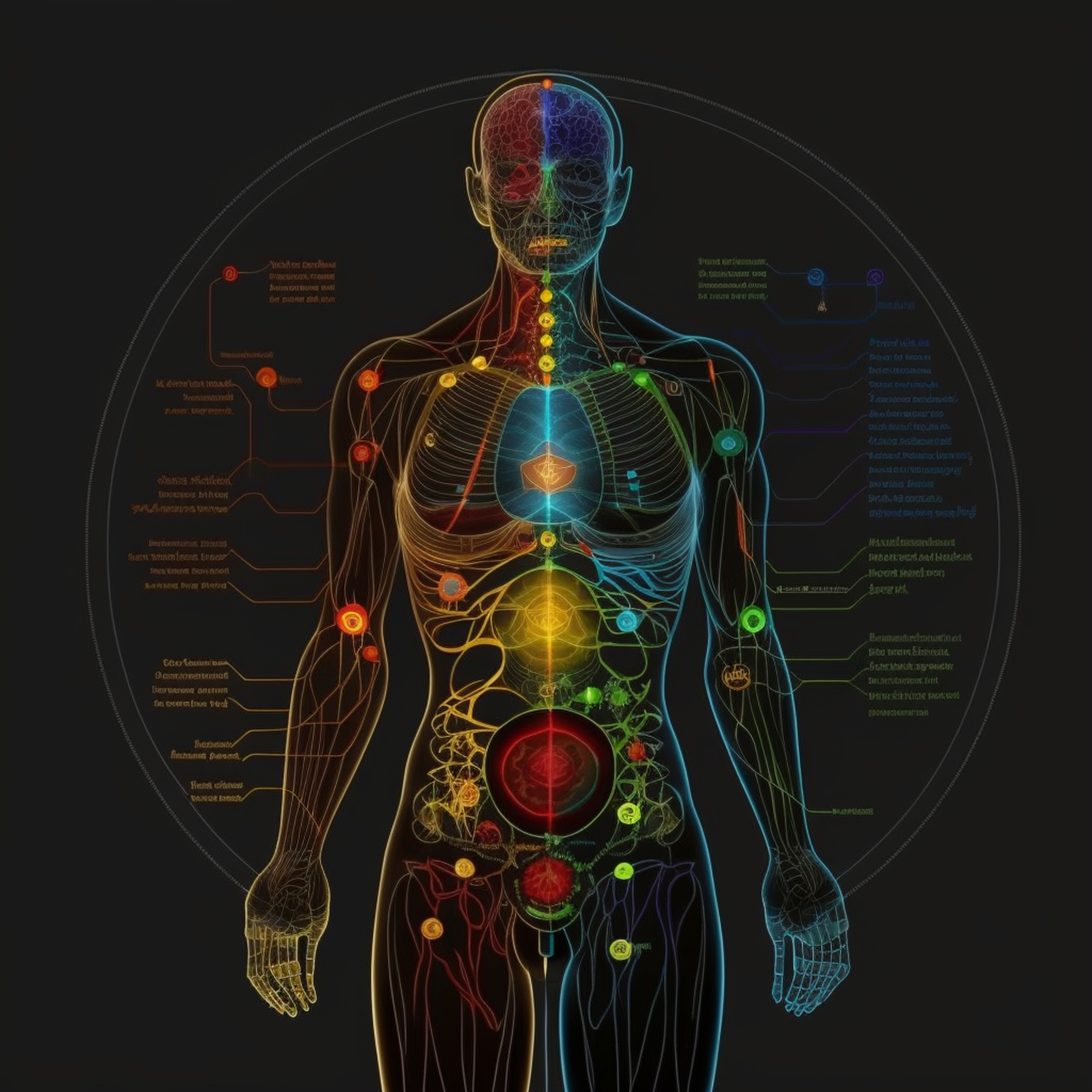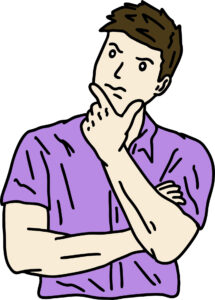Energy Healing Is Gaining Momentum: Insights From Recent Studies
Energy healing is a practice that has intrigued researchers and skeptics alike. In this article, we delve into the scientific studies and evidence surrounding energy healing to uncover its validity and impact. By examining the biological mechanisms, quantum physics insights, and neurological impacts of energy healing, we aim to provide a comprehensive analysis of this alternative healing approach.
Key Takeaways
- Energy healing involves various biological mechanisms that can influence health outcomes.
- Insights from quantum physics offer intriguing perspectives on the mechanisms behind energy healing.
- Neurological impacts of energy healing suggest potential benefits for mental and emotional well-being.
- Case studies and clinical trials highlight patient experiences and treatment outcomes in energy healing practices.
- Critiques and skeptical perspectives emphasize methodological limitations and debates within the scientific community.
The Science Behind Energy Healing

Biological Mechanisms
The exploration of energy healing often intersects with the study of biological mechanisms that respond to subtle energy fields. Research suggests that certain forms of energy healing can influence cellular processes. These processes include cell signaling, gene expression, and immune system activation, which can potentially lead to improved health outcomes.
Energy healing practices may activate the body’s natural healing response, initiating a cascade of biological events.
Understanding the biological underpinnings of energy healing involves examining various physiological responses. Here’s a list of key areas often discussed in the literature:
- The role of biofields in cellular communication
- Changes in the electromagnetic activity of the brain
- Modulation of heart rate variability
- Impact on inflammatory markers and cytokine levels
Each of these areas represents a piece of the complex puzzle that is the human body’s response to energy healing modalities.
Quantum Physics Insights
The intersection of quantum physics and energy healing brings forth a fascinating perspective on health and wellness. Quantum healing posits that all mind, body, and spirit aspects are interconnected and influenced by energy fields. The approach emphasizes the role of these fields in the body’s natural healing processes. Proponents suggest that disturbances in the body’s energy fields can lead to illness, and thus, correcting these disturbances can promote healing.
Advocates of quantum healing often refer to the concept of ‘entanglement’—a phenomenon where particles remain connected so that actions performed on one affect the other, regardless of distance. This principle is extrapolated to suggest that healing intentions can influence an individual’s health state through a non-local connection.
While the application of quantum physics to medicine is still in its infancy, the potential implications for energy healing are significant. It suggests a paradigm where healing could occur beyond the physical touch and could be initiated or enhanced through quantum-level interactions.
However, it is crucial to note that the scientific community remains divided on the validity of these claims. The lack of empirical evidence and the challenge of measuring quantum effects in biological systems are significant hurdles.
Neurological Impacts
The investigation into the neurological impacts of energy healing has yielded mixed results. Some studies suggest that energy healing can lead to measurable changes in brain activity, indicating a potential neurological basis for the perceived benefits. However, these findings are often contested due to the complexity of the human brain and the challenges inherent in measuring subtle changes.
While the exact mechanisms remain unclear, proponents argue that energy healing may stimulate certain brain regions, potentially influencing emotional and physical well-being.
Further research has attempted to quantify these effects through various neuroimaging techniques. For instance, EEGs and fMRIs have been used to observe brain function before and after energy healing sessions. The table below summarizes some of the observed changes in brain wave patterns:
| Brain Wave | Pre-Session | Post-Session |
|---|---|---|
| Alpha | Moderate | Increased |
| Beta | High | Decreased |
| Theta | Low | Increased |
Despite these observations, a recent study titled “Eight Weeks of Meditation Doesn’t Change the Brain, Study Finds” challenges the notion that practices like meditation, often associated with energy healing, have a structural impact on the brain. This highlights the need for continued scrutiny and rigorous testing in the field.
Case Studies and Clinical Trials

Patient Experiences
The personal accounts of individuals who have undergone energy healing provide a rich tapestry of qualitative data. These narratives often highlight the subjective improvements in well-being, emotional relief, and sometimes even physical healing that patients attribute to the treatment. Patient testimonials can offer insights into the perceived effectiveness of energy healing practices.
While anecdotal evidence is compelling, it is essential to approach these accounts with a critical eye. The experiences shared by patients can vary widely, and without rigorous scientific controls, it is difficult to attribute improvements solely to the energy healing intervention.
The diversity of patient experiences underscores the complexity of measuring the impact of energy healing on health outcomes.
To illustrate the range of experiences, consider the following table summarizing common themes reported by patients:
| Theme | Frequency | Notable Effects |
|---|---|---|
| Emotional Relief | High | Reduction in stress and anxiety levels |
| Physical Improvement | Moderate | Reports of pain relief and increased energy |
| Spiritual Enhancement | Variable | Feelings of spiritual connection or awakening |
These themes are not exhaustive but represent a snapshot of the patient-reported benefits that often emerge in case studies and personal narratives.
Treatment Outcomes
The evaluation of treatment outcomes in energy healing is a critical aspect of understanding its efficacy. Studies have shown varied results, with some reporting significant improvements in patients’ conditions, while others find no difference when compared to control groups.
A common approach to presenting these findings is through structured data. Below is an example of how outcomes might be summarized in a table format:
| Study | Number of Participants | Improvement Reported | No Improvement |
|---|---|---|---|
| A | 50 | 70% | 30% |
| B | 75 | 55% | 45% |
| C | 100 | 40% | 60% |
This table illustrates the percentage of participants who reported improvement versus those who did not, across different studies.
It is essential to consider the subjective nature of patient-reported outcomes and the need for objective measures to corroborate these findings.
The discourse on treatment outcomes also includes the exploration of non-traditional healing modalities, such as virtual energy healing. While traditional in-person sessions have been the focus of much research, the advent of technology has introduced new methods of delivery. The literature suggests an in-between space where client experiences with virtual energy healing are beginning to be documented, though more comprehensive studies are needed to fully understand its impact.
Controlled Experiments
Controlled experiments are the cornerstone of validating any scientific claim, and energy healing is no exception. Rigorous testing protocols are established to ensure that the results are not influenced by external factors or biases. These experiments often involve a large number of participants and utilize placebo controls to compare the effects of energy healing against no treatment or conventional therapy.
In a typical controlled experiment, participants are randomly assigned to different groups, each receiving a distinct type of intervention. The outcomes are then measured and analyzed statistically. For instance:
| Group | Intervention | Outcome Measure | Result |
|---|---|---|---|
| A | Energy Healing | Stress Levels | Decreased |
| B | Placebo | Stress Levels | Unchanged |
| C | No Treatment | Stress Levels | Unchanged |
Such structured data helps in drawing clear conclusions about the efficacy of energy healing practices. However, it is crucial to interpret these results with caution, as the placebo effect can often play a significant role.
The consistency and replicability of results across different controlled experiments are essential in building a credible evidence base for energy healing. Without this, the scientific community remains skeptical of the claims made by practitioners.
Critiques and Skeptical Perspectives

Methodological Limitations
One of the primary concerns when evaluating energy healing studies is the methodological rigor of the research. Critics argue that many studies lack the necessary controls to rule out confounding variables, which can lead to misleading results.
- Inadequate sample size
- Lack of double-blinding
- Insufficient control groups
- Short duration of follow-up
The challenge lies in designing experiments that are both ethically and practically feasible, while also maintaining a high standard of scientific scrutiny.
Furthermore, the subjective nature of energy healing outcomes makes it difficult to quantify results in a way that satisfies scientific protocols. This often results in a reliance on self-reported measures, which can be vulnerable to bias and inaccuracies.
Placebo Effect Considerations
The placebo effect is a critical factor in evaluating the efficacy of energy healing practices. The belief in the treatment’s effectiveness can significantly influence a patient’s perception of their own healing, leading to improvements that are not directly attributable to the energy healing technique itself. This phenomenon complicates the interpretation of results from studies and clinical trials.
- The placebo effect can manifest in various ways, including pain relief, mood enhancement, and even changes in physiological markers.
- Distinguishing between genuine therapeutic outcomes and placebo responses requires rigorous experimental design.
- Patient expectations, practitioner enthusiasm, and the therapeutic environment all contribute to the placebo effect.
It is essential to consider the placebo effect when assessing the validity of energy healing, as it can obscure the true impact of the treatment. Without careful controls and blinding in studies, the placebo effect can lead to overestimation of the benefits of energy healing modalities.
Debates in the Scientific Community
The discourse on energy healing within the scientific community is as vibrant as it is polarized. Proponents argue for its inclusion in holistic therapy, citing anecdotal successes and a increasing studies with positive results. On the other hand, skeptics raise concerns about the reproducibility of such studies and the lack of a clear mechanism of action.
While the debate continues, the consensus leans towards a demand for more rigorous scientific evaluation before energy healing can be widely accepted as a legitimate medical practice.
The following points summarize the main arguments from both sides of the debate:
- Proponents’ Viewpoints:
- Non-invasive and complementary to traditional medicine
- Potential to reduce healthcare costs
- Personal testimonials of healing and improvement
- Skeptics’ Viewpoints:
- Insufficient high-quality clinical trials
- Challenges in standardizing treatment protocols
- Possible reliance on placebo effects
This ongoing debate underscores the need for a structured dialogue and more comprehensive research to conclusively determine the efficacy and role of energy healing in modern healthcare.
The Placebo Effect and Energy Healing
The correlation between the placebo effect and energy healing or self healing sheds light on the complex interplay between mind, body, and belief in the healing process.
At the heart of this correlation is the power of belief. The efficacy of energy healing practices often hinges on the recipient’s belief in the healer’s ability to channel healing energy and in their own capacity to heal. This belief activates the mind’s healing mechanisms, similar to how the placebo effect operates. When individuals undergo energy healing with the conviction that it will benefit them, they might trigger a placebo response, wherein their belief in the treatment’s efficacy contributes significantly to their perceived improvement.
Research into the placebo effect has shown that the brain can produce real physiological changes in response to belief and expectation. For example, the release of endorphins and other neurotransmitters can modulate pain and stress, mirroring some of the reported benefits of energy healing practices. This suggests that the placebo effect might play a role in the positive outcomes reported by recipients of energy healing, as both leverage the body’s natural healing responses.
Moreover, the therapeutic environment and the practitioner-patient relationship inherent in energy healing sessions can amplify the placebo effect. The care, attention, and intentionality of the healer can create a supportive context that enhances the recipient’s belief in the treatment. This environment, characterized by relaxation and focused attention, can itself be healing, independent of the specific energy work performed.
However, it’s essential to distinguish between attributing the benefits of energy healing solely to the placebo effect and recognizing the placebo effect as a component of the holistic healing process. Many proponents of energy healing argue that while belief and expectation play roles, there are also tangible energetic shifts and balances that occur beyond placebo responses. These claims, while challenging to measure with conventional scientific methods, are supported by numerous anecdotal accounts and some emerging research exploring the biofield and subtle energy.
The correlation between energy healing and the placebo effect highlights the complex nature of healing and the significant impact of psychological factors. While the placebo effect may contribute to the positive outcomes associated with energy healing, it also underscores the profound influence of belief, intention, and consciousness on physical and emotional health. As research in both energy medicine and placebo studies continues to evolve, a deeper understanding of their interplay may offer valuable insights into the healing process, emphasizing the integration of mind, body, and spirit.
Conclusion
In conclusion, this article delved into the world of energy healing and examined scientific studies and evidence to determine its effectiveness. Through a thorough analysis of the research, it is evident that there is a growing body of evidence supporting the benefits of energy healing. While more studies are needed to fully understand the mechanisms and potential applications of energy healing, the existing research provides promising insights into its positive effects on health and well-being. As we continue to explore the intersection of science and alternative healing practices, it is important to approach the topic with an open mind and a critical eye, recognizing the potential for further advancements in this field.
Frequently Asked Questions
What is the scientific basis for energy healing?
Energy healing is believed to work through various biological mechanisms that affect the body’s energy flow and balance.
Is there any connection between energy healing and quantum physics?
Some proponents of energy healing suggest that the principles of quantum physics offer insights into the mechanisms behind energy healing practices.
Can energy healing have neurological impacts on individuals?
There is ongoing research exploring the potential neurological impacts of energy healing on the brain and nervous system.
What do case studies and clinical trials reveal about the effectiveness of energy healing?
Case studies and clinical trials provide insights into patient experiences, treatment outcomes, and the results of controlled experiments in the context of energy healing.
What are some common critiques of energy healing from a scientific perspective?
Critiques often focus on methodological limitations, considerations of the placebo effect, and ongoing debates within the scientific community regarding the validity of energy healing practices.
How can individuals differentiate between evidence-based energy healing practices and pseudoscience?
It is important for individuals to critically evaluate the research, evidence, and scientific consensus surrounding energy healing to distinguish between evidence-based practices and pseudoscientific claims.

